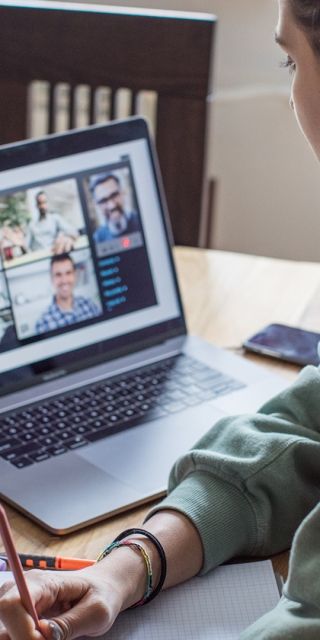
Secure your device
Secure your device
Here is some useful information so you can protect yourself, your data, and your devices.
You can save your work to the University G: drive. This is your own personal space for storing documents, which is regularly backed up. This means you can restore a document if you accidently delete or save over it. Alternatively, you can also save your work to the Student OneDrive which has 5TB of storage.
It’s much better not to put data on a USB stick at all. If you must transport data on a USB stick, all the confidential information should be encrypted. USB sticks can easily be lost or forgotten, and if not encrypted, they can then be accessed by anyone who finds them.
Backup your information regularly to ensure you always have a recent version. Doing so will let you recover your data more quickly if it is lost or stolen. Set up automatic backups so that your information is regularly saved into cloud storage without you having to remember to do so.
Keep your personal devices secure by making sure you are using antivirus solutions and keeping software up to date regularly such as windows, security updates and drivers. Set up automatic updates so that your devices will update without you having to remember to do so.
Set a passcode, pattern recognition, fingerprint scanning and facial recognition. This will provide increased security for you.
Any portable device is vulnerable to theft, loss, or vandalism.
Never leave your laptop, tablet, mobile phone, or any other electronic device unattended, whether it is in the library, lecture theatre or the local café. If you are stopping for a break either take your device with you or lock your device in a location out of view. If your device supports it, you might want to consider investing in a cable lock.
Use screen locks. This is a simple yet secure measure you can put in place to protect your information. Remember to configure this for your own mobile phone, tablets, laptop or computer.
Use password protected screen savers. Set up your screen saver so that after a period of inactivity, determined by you, your screen saver will kick in. When you wake the device to use it you will the need to enter your password.
-
Report this immediately to your network provider so that they can block it
-
If you suspect your device has been stolen report it to your local police station in person or by calling 101
-
Ask your network provider for the IMEI (Phones identification number) as the police will need this
You can get some more useful information on the Citizens Advice lost/stolen page.
If in doubt, call it out – If you think any of your devices or accounts could have been compromised in any way, please report this to the IT Service Desk by emailing: it@bnu.ac.uk or calling 01494 605000. For more information on how to report and Incident please visit If in doubt, call it out page.